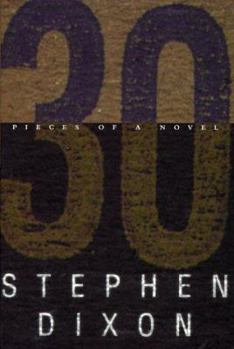30
Over the course of a long career, Stephen Dixon has never been bitten by the minimalist bug, or even lightly grazed by it. His books tend toward the big-boned and expansive, and his prose--with its... This description may be from another edition of this product.
Format:Hardcover
Language:English
ISBN:0805059237
ISBN13:9780805059236
Release Date:January 1999
Publisher:Henry Holt & Company
Length:672 Pages
Weight:2.50 lbs.
Dimensions:1.9" x 6.4" x 9.5"
Customer Reviews
4 ratings
Fabulous
Published by Thriftbooks.com User , 25 years ago
An impressive and outstanding novel. Dixon is the direct descendant of Joyce and Faulkner tinged with his own modern day 'end of cycle' vision of the middle aged man in the West. Thorough craftsmanship, tremendous empathy with human follies and strengths and great humour. And a damn sight easier reading than Gaddis (who is still greater I think). For those who take pot shots at Dixon, they should remember that they are only displaying their ignorance and inability to understand true fiction. For what is fiction and the art of story telling is what Dixon is all about.
We editors at StoryQuarterly are Steve Dixon fans
Published by Thriftbooks.com User , 25 years ago
For 24 years now, we have loved and published many of Steve Dixon's stories. Thirteen, to be exact. And in our upcoming SQ Issue,#35, we're doing it again. Celebrate with us. Anne Brashler and Marie Hayes, co-editors of StoryQuarterly.
Another masterwork; NYTimesReviewer Is Jealous
Published by Thriftbooks.com User , 25 years ago
Having just read (NYTIMES) Vincent Passaro's two-for-one book reviews of Stephen Dixon's latest short story collection (Sleep) and novel (30), I must express immense disappointment in the reviewer's assumed capabilities to take on the task of reviewing a writer's work as challenging as Dixon's.From the start Passaro comes across as nothing more but a cranky literary magazine editor who is finally embracing the occasion of being able to slam Dixon in a national publication. There are probably lots of obscure lit.magazine editors/readers like this, but none are as lucky as Passaro who gets to devote considerable space to critiquing Dixon's scattered and maybe slipshod method of sending stories to magazines. What this has to do with approximately 955 pages (combined) of writing is beyond me. This would be akin to a frustrated actor remembering the time he was eating in a restaurant and happened to spy Woody Allen shoveling spaghetti into his face with the zeal of a 5-year old.The reviewer also breaks no new ground in criticizing Dixon's style - the paragraphs that meander for pages; the patterns of speech that he employs. One wonders how much of Dixon's work he has read; would one call it a valid criticism of Picasso's work that it's too abstract - or better still, would one call it a fresh criticism?Passaro wraps up his scattershot review by concluding that Dixon "is a second-tier member of what one might call the Horny Old Men School of American literature" who doesn't allow the reader to "enjoy the ride". In other words, it's just not sexy enough for Passaro. Well, sometimes life is like that. There's plenty of erotic literature on the shelves already; maybe that's what Passaro was looking for in the first place.
Make up your own mind about this book
Published by Thriftbooks.com User , 25 years ago
I want to defend this novel from its detractors, particularly the New York Times Book Review, which showed shocking disrespect for the author and ignored the book's considerable technical and emotional feats. "30" is not a dreary list of prosaic domestic facts, nor is it a failed modernist experiment tied together with a lot of sex. It is a careful, moving study of the contrast between family and ego, and of the workings of the imagination. The narrative breadth of the book is amazing; Gould Bookbinder, its protagonist, sees his mother to her death; powerfully invents an entire life for his brother, who died in childhood; revises his memories as he recalls them and interprets his story as it unfolds. The result is not in the least bit dull or confusing, only demanding to the reader, as a book must occasionally be. If you like Dixon, read it immediately; if you don't know his work well start with the criminally out-of-print "Stories of Stephen Dixon." And ignore all book reviews, except of course this one.





